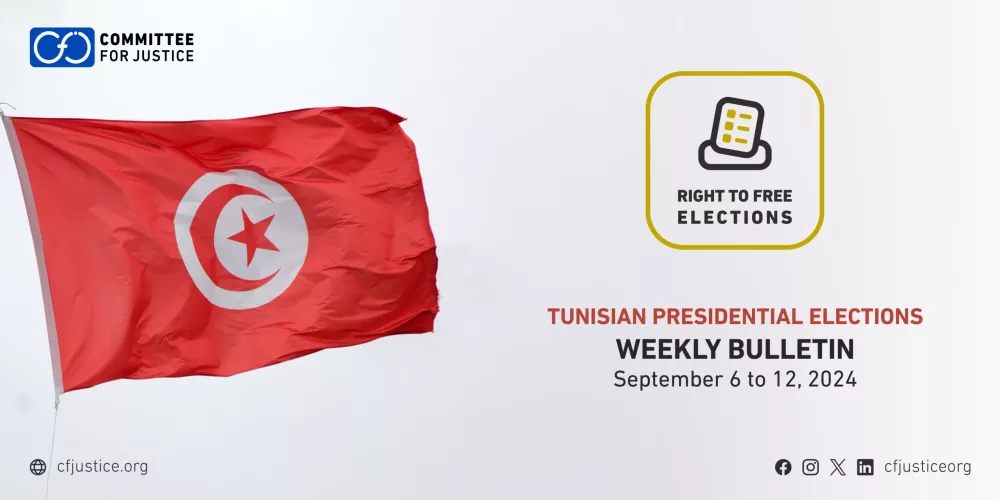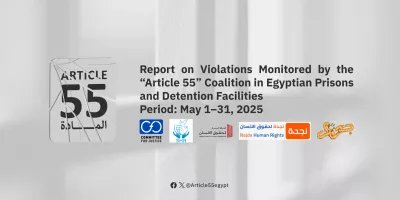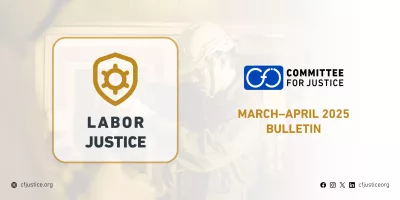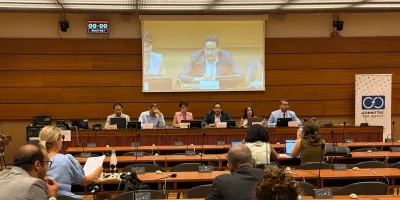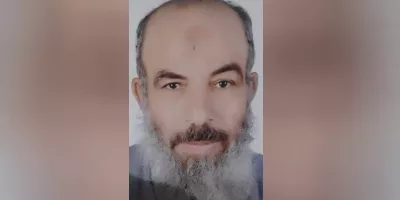The Committee for Justice (CFJ) has released its weekly bulletin on monitoring the Tunisian presidential elections, covering the period from September 6 to 12, 2024. This report focuses on reviewing the recent developments in the electoral process, highlighting severe violations of civil and political rights, and legal breaches of the electoral law.
The bulletin also addresses the challenges faced by the candidates and the repressive measures taken by the authorities, which threaten the fairness and transparency of the election process. Through this publication, CFJ aims to shed light on undemocratic practices and provide recommendations to ensure free and fair elections in Tunisia.
– Condemnations and legal actions against the electoral commission for violating the law:
The “I Watch” organization filed a lawsuit against the Electoral Commission, accusing it of exceeding its authority and violating the law after the decision to finalize the candidates’ list. The organization believes the commission has disregarded the decisions of the Administrative Court, which poses a threat to the rule of law and its institutions.
Additionally, journalist Ziyad El-Hani and former judge Ahmed Sawab have filed lawsuits against the commission as voters, claiming that the commission is manipulating the integrity of the electoral process. Meanwhile, the European Union condemned the “anti-democratic” measures, especially with the arrest of some candidates and the exclusion of others. The EU expressed concern over the decline of democracy in Tunisia and called for respect for the rule of law and the separation of powers.
“Human Rights Watch” stated that the Electoral Commission is paving the way for a second term for President Kais Saied, citing the commission’s interference in the elections, which skews the process in his favor.
– New court ruling against the electoral commission:
The Administrative Court issued a new ruling obliging the Electoral Commission to reinstate former Minister Abdel Latif Al-Makki as a presidential candidate, after the commission failed to implement a previous ruling on the matter.
– Accusations against monitoring organizations and threats to the media:
The “Observers Network,” an organization specialized in monitoring elections, announced that it had not received a response from the Electoral Commission regarding its accreditation to monitor the elections. Meanwhile, the commission indicated that investigations were underway into suspicious foreign funding of some organizations, such as “I Watch,” which led to the suspension of their accreditation requests.
The Electoral Commission also issued warnings to local media outlets for what it considered defamation of the commission’s president or questioning its independence, impacting the work of these outlets and violating their right to freedom of expression.
– Unexpected change in governors by the outgoing president:
In an unexpected move, outgoing President Kais Saied issued a decision to change the governors in 24 provinces, sparking speculation about the impact of this decision on the fairness of the elections.
– Presidential election campaigns abroad begin:
Presidential election campaigns abroad began on September 12, 2024, covering over 620,000 registered voters in 10 electoral districts. However, there have been criticisms regarding the potential for influencing the voting process abroad.
– Prosecution of candidates and arrest campaign against politicians:
Tunisia also witnessed a wide-ranging arrest campaign targeting several presidential candidates. On September 5, one of the candidates, Ayachi Zammel, was arrested, sparking a wave of criticism and accusations that the authorities are using political arrests as a tool to eliminate competitors.
Additionally, the Criminal Division of the Tunis Court of Appeals upheld a preliminary ruling sentencing Abdel Latif Al-Makki and Nizar Chaari to eight months in prison and banning them from running for office for life on charges related to “forging endorsements” for presidential candidacy. A third accused individual was also tried in absentia.
In the same context, lawyer Salman Al-Saghir stated in a press interview that “at least 80 individuals from the Ennahda Party have been recently arrested across the country, with terrorism charges being leveled against the detainees.”

